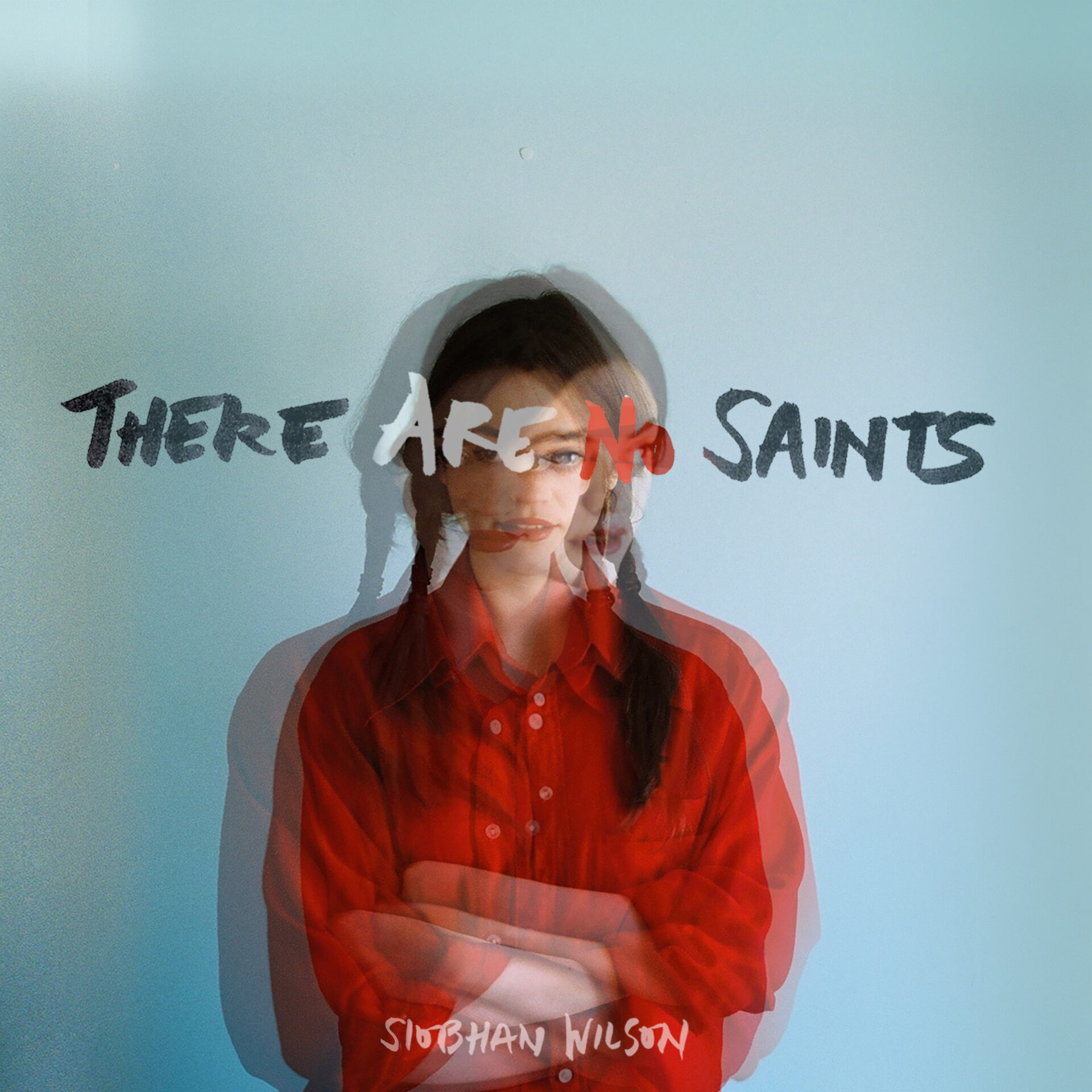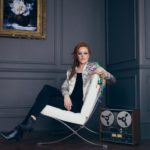We’re all chancing along the precipice, of course. The gentlest of pressure applied along the glued-up, duct-taped seams of the responsible world finds the whole thing bursting apart, and with it our job titles, rictus grins, marriage vows, sobriety chips, management buzzwords. On her second album There Are No Saints, Siobhan Wilson identifies herself as “neither Cathy nor Anna Karenina,” but perhaps an interlocutor between the two: pulling at the scuzzy fabric and binding it into something both prettier and more substantial.
Born in Elgin, Wilson spent time writing and recording in Paris before returning to Scotland. She doesn’t hear the Scottishness in her sound, though recognises that others do: “It’s like when you look in the mirror and can’t see the resemblance between you and your parents,” she framed it in a recent interview. Paris and Elgin certainly form an unusual duality, though both appear present in her work. Tracks like ‘Incarnation’ and ‘Whatever Helps’ are driven – or at least, occasionally given directions – by the kind of restrained guitar fuzz that might growl in the background of a Jesus and Mary Chain number, while her voice cuts through the haze with the elegance and Gallic charm of a Camille.
The only thing that prevents the listener succumbing completely to the record’s soporific sweep is a desire to pay attention to the words; like Joanna Newsom, the choral delivery occasionally smuggles past some great lyrics, which swing from pastoral scenes to sharp-witted bar jabs. “There was just you and me, and a jukebox playing AC/DC,” she sings on ‘Make You Mine’, a song that carries exquisite comic timing even when it’s not playing for laughs. “There was just you, and me, and a giant disco ball, and a DJ playing all the wrong songs to fall in love to,” she explains, then almost whispers the cute finish: “But we do.”
Older track ‘Dear God’ remains as loveable as ever, bearing the self-deprecating swagger of a Smiths song. It’s also the first track to show off snatches of her impressive French, displayed more fully on ‘Paris Est Blanche’ and a cover of French classic ‘J’attendrai’. These inflections, married to the aforementioned Scottish qualities, lend the album a tipsy chanteuse quality, as though she keeps trying to cover ‘Lilac Wine’, only to remember it slightly differently each time. (I should clarify: that is entirely a compliment.) It also breaks up the pace slightly, allowing for slower and stranger numbers to step in, particularly the electronic experimentation of ‘Dystopian Bach’.
But occasionally all the giddy, disparate elements seem to coalesce into one, and Wilson produces the kind of heart-on-sleeve stuff that will see her performing on successively larger stages over the next few years. Songs like ‘Disaster and Grace’ offer simmering hymnals to both the former and the latter, attempting a discourse at what might be found at the intersection of the two. Because what is grace, if not the ability to navigate and refashion one’s own disasters in a more elegant form? ‘Fake it till you make it’ is the popular expression, though I’m no longer convinced there’s much distance between those two either. And if we’re all faking it – putting on our best smiles and acting like grown-ups till the day we finally die of embarrassment – we can at least aspire to the transformative grace of Siobhan Wilson.
There Are No Saints is released on July 14th through Song By Toad Records.




